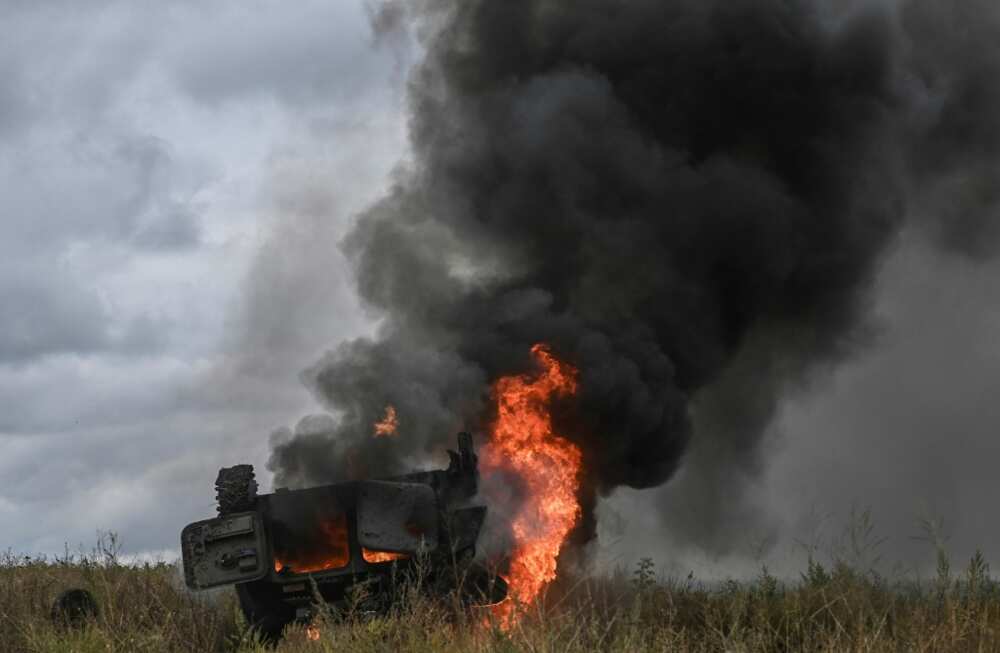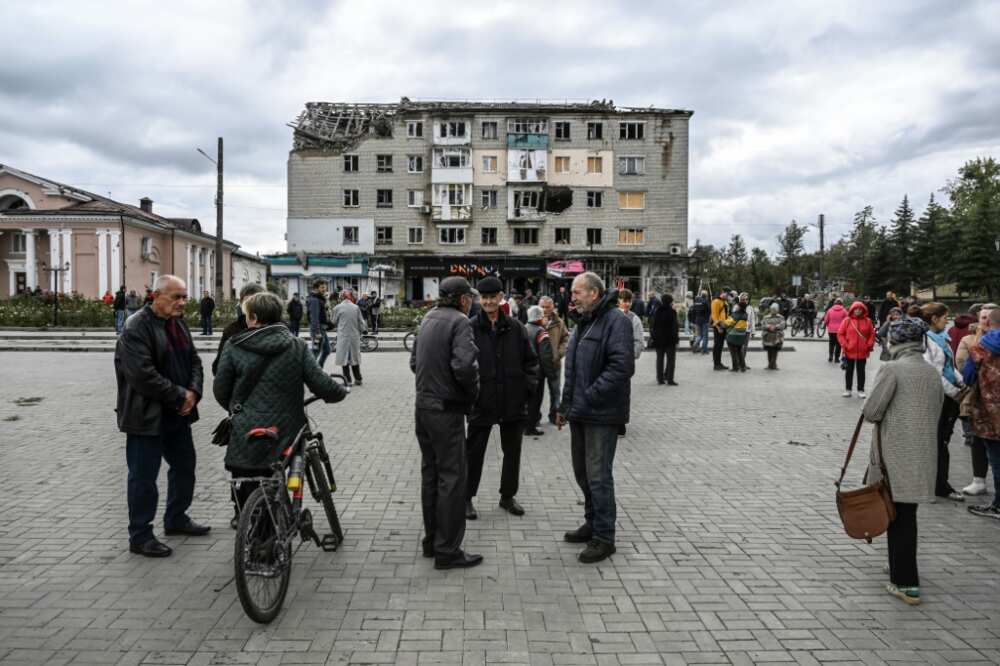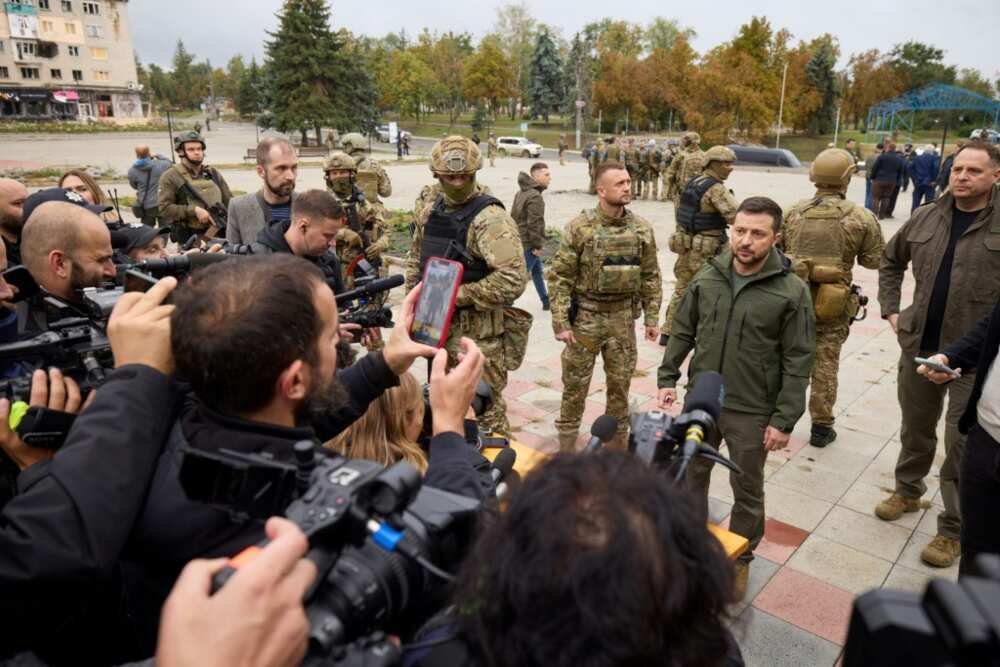'You sold Ukraine': Izyum contends with occupation's fallout

Source: AFP
The troubles in the Ukrainian city of Izyum did not leave with retreating Russian troops, in fact some residents have now accused each other of cosying up to the occupiers.
Just after President Volodymyr Zelensky's symbolic visit Wednesday to mark the strategic hub's liberation in Ukraine's lightning counter-offensive, dozens of mostly elderly people gathered outside the charred town hall.
They were in no mood for celebration.
"You sold Ukraine for a ration (of food)," a woman shouted at Svitlana Ficher, a 55-year-old who received Russian aid during the occupation.
Izyum, a predominantly Russian-speaking city of about 50,000 people, had been fully occupied since April and had become a key logistics base for Moscow.

Source: AFP
PAY ATTENTION: Share your outstanding story with our editors! Please reach us through info@corp.legit.ng!
Its re-capture marked a strategic victory for Kyiv that has recently claimed sweeping successes in the northeastern Kharkiv region, putting Moscow on the back foot.
Zelensky made an impromptu appearance on Wednesday, when, flanked by soldiers he watched Ukraine's flag being hoisted over the main square.
But occupation has left a stain of suspicion and blame on the city that comes in addition to the war-shattered buildings, burned military vehicles and suffering of its locals.
'Traitor'
Residents on Wednesday also demanded to see the mayor -- some people wanted to know when state aid would arrive and essential services resume.

Source: AFP
Others like Ficher complained they had been left to fend for themselves -- but were in turn accused of cosying up to the occupier.
"She wants to be fed by Russia," a man yelled, as others came to the Ficher's defence.
About half of Izyum's inhabitants, including mayor Valeri Marchenko, left when Moscow's troops approached.
Some of those who stayed supported Russian rule.
Ficher told AFP she was no collaborator and was only trying to survive.
"I came to tell the mayor he's an idiot, he's a liar. He saved (himself) but he left the people behind," she said.
"We had no information about evacuation. I couldn't leave, no one gave me such a possibility. And now I'm a traitor because I survived thanks to Russian food."
Marchenko did not show up.
'You are free'
Back in the square, others quarrelled over who was responsible for the massive destruction experienced by the city.
"These quarrels, it's the problem of democracy. With the Russians it would not happen," said a man who did not give his name.
A Ukrainian soldier speaking on condition of anonymity said many pro-Russian residents took the road towards the Moscow-controlled east even before Ukrainian troops arrived.
They left behind a city slowly returning to life.
"Since the last four days we've been ecstatic," said Taisiya Litovka, a 46-year-old nurse, explaining she wanted communications to be restored so she could call her children.
"When the military came there. We asked them: 'when is the curfew?' They said: 'what are you talking about? You are free'," she said.
It had been a long time since she saw so many people outside, she added.
A little further away, Georgyi Zhykidze, a 60-year-old Georgian married to a woman from Izyum, walked with a Ukrainian flag wrapped around his shoulders as two tanks roared by.
"We moved here because we had a war in Georgia but the war followed us. We have a common enemy in Georgia and in Ukraine: it's Russia."
Source: AFP



